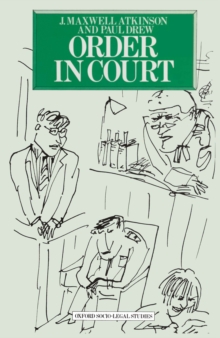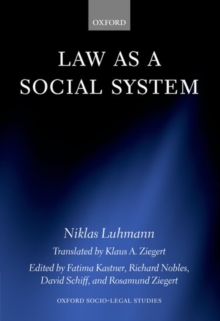
The Power of Judges : A Comparative Study of Courts and Democracy Hardback
by Carlo (, Dipartimento di organizzazione e sistema politico, Bologna, Italy) Guarnieri, Patrizia (, Dipartimento di organizzazione e sistema politico, Bologna, Italy) Pederzoli
Part of the Oxford Socio-Legal Studies series
Hardback
Description
Judicial intervention in social, economic, and political issues ('judicialization') has increased substantially in democracies in recent years.
The change has been more dramatic in Europe than in the United States, where judicial law-making has largely been assimilated into the political process.
Judges played a central role in a series of major political controversies throughout the 1990s in Italy, Spain, and France, and their involvement has resulted in moves to restrict or alter the power of judges.
The role of judges has also become the subject of political debate and reform proposals in England, Portugal, and Germany. This book argues that three elements affect the political significance of judicial decisions.
First is the status of judges (the way they are recruited and the guarantees they enjoy) and the way judges define their role in the judicial and political process.
Second is the organization of the judicial system, including the existence of judicial review of legislation, the structure of trials and the arrangement of public prosecution.
Thirdly, judicial power is affected by the broader political system: a polity in which power is divided and fragmented offers wider opportunities for the judiciary to intervene in the political process.
Information
-
Out of stock
- Format:Hardback
- Pages:245 pages
- Publisher:Oxford University Press
- Publication Date:04/04/2002
- Category:
- ISBN:9780198298359
Information
-
Out of stock
- Format:Hardback
- Pages:245 pages
- Publisher:Oxford University Press
- Publication Date:04/04/2002
- Category:
- ISBN:9780198298359










